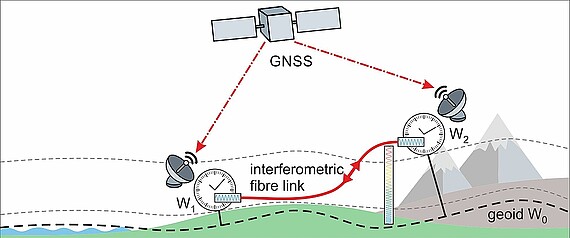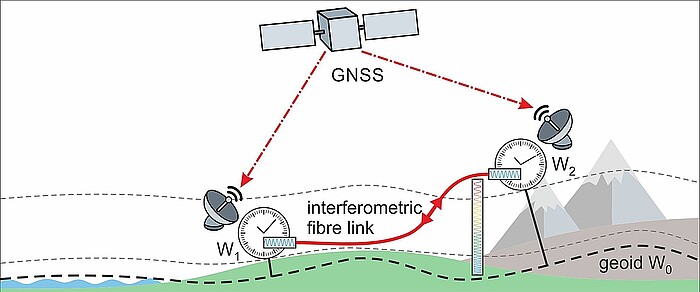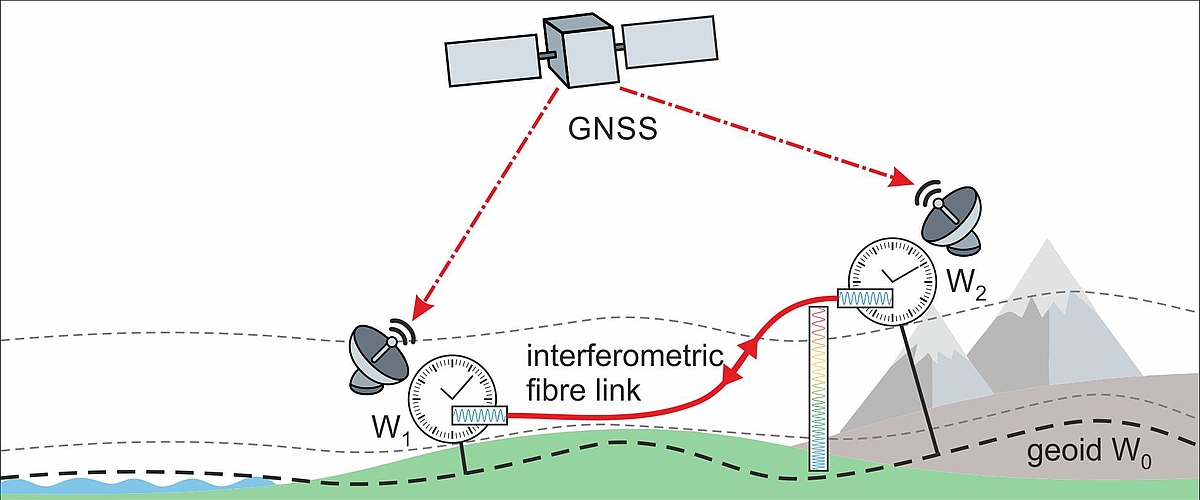Interferometric Fibre Links (CRC 1464, A05)
| Led by: | Prof. Dr.-Ing. Steffen Schön, Dr. Jochen Kronjäger |
| Team: | Ahmed Elmaghraby, Dr. Thomas Krawinkel, Dr. Alexander Kuhl, Shambo Mukherjee |
| Year: | 2021 |
| Funding: | DFG |


 ©
T. Waterholter
©
T. Waterholter
The overarching goal, to establish chronometric levelling as a routine tool for geodesy, requires research and developments for high precision frequency transfer in the areas of Interferometric Fibre Links (IFLs) and Global Naviation Satellite System - Frequency Transfer (GNSS-FT). The development of fieldable IFLs equipment, ultraprecise GNSS-FT and their use for chronometric levelling, are new areas of research and development, which will open up many applications of geodetic interest. We aim to realise an island-mainland chronometric levelling campaign using IFL and GNSS-FT, and the transportable optical clocks developed in A04. If successful, this will demonstrate chronometric levelling in a very challenging environment and yield valuable height difference data. Implementing a stabilised IFL in the field, especially on submarine optical fibres, already constitutes a major advance for optical frequency transfer. Jointly with A04, we will perform the first international chronometric levelling campaign that verifies the European height system at the cm level. Optical clock uncertainty averages down with measurement time τ as 1/√τ , compared to 1 /τ for IFLs themselves, and may require weeks of clock comparison data to reach cm resolution.
PTBs long-distance frequency transfer systems will be adapted to support such a long campaign. The attainable stability and needed averaging times for GNSS-FT are still limited by unmodelled observation errors, so that the full potential cannot be exploited. We will develop and implement improved GPS+Galileo analysis algorithms for FT in order to overcome the current issues (such as antenna and multipath related issues, tropospheric refraction). The successful completion of A05 will significantly contribute to understand and correct the error contributions and to exploit the new possibility of characterising them thanks to IFLs as a ground truth for GNSS-FT.




